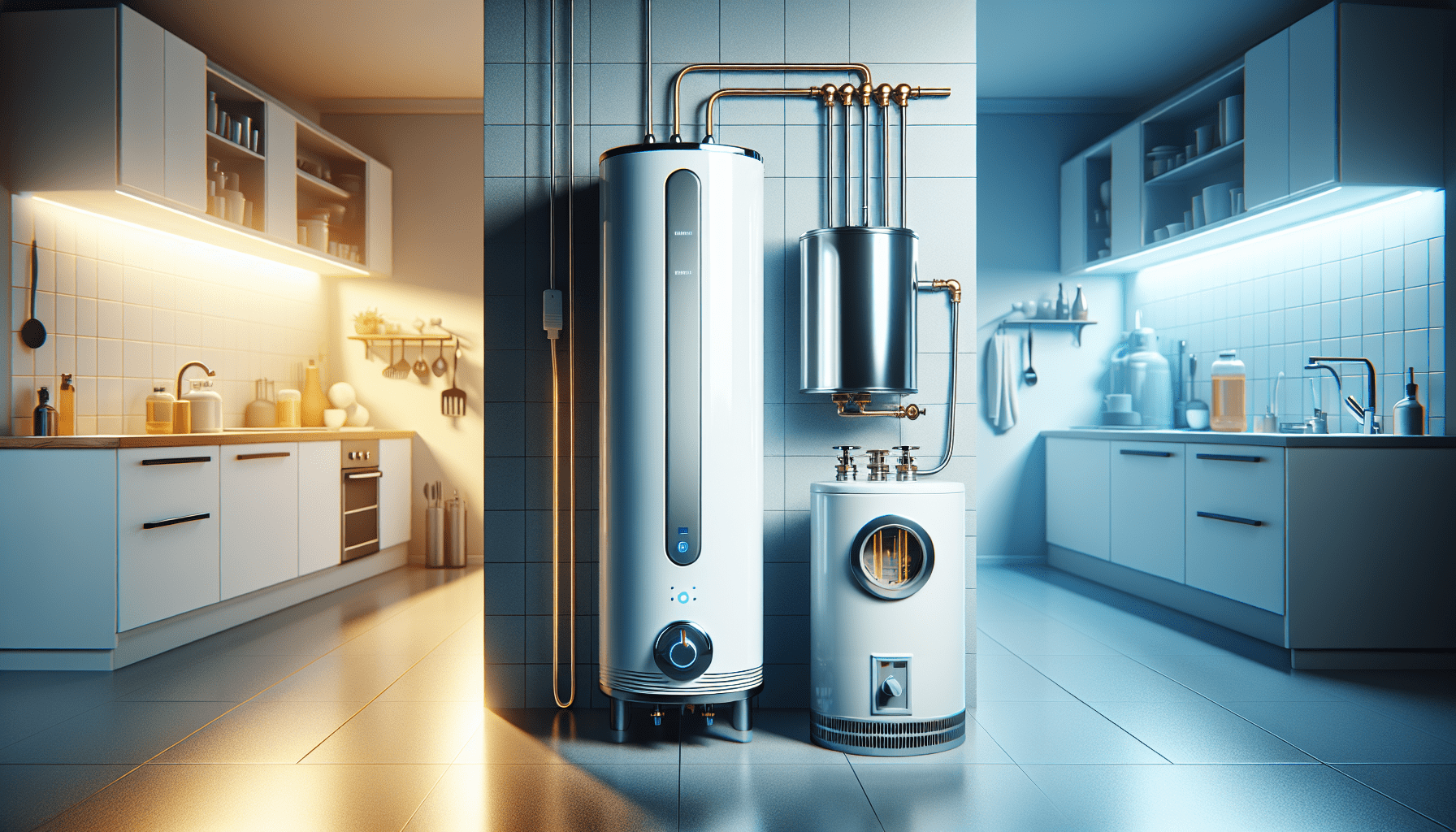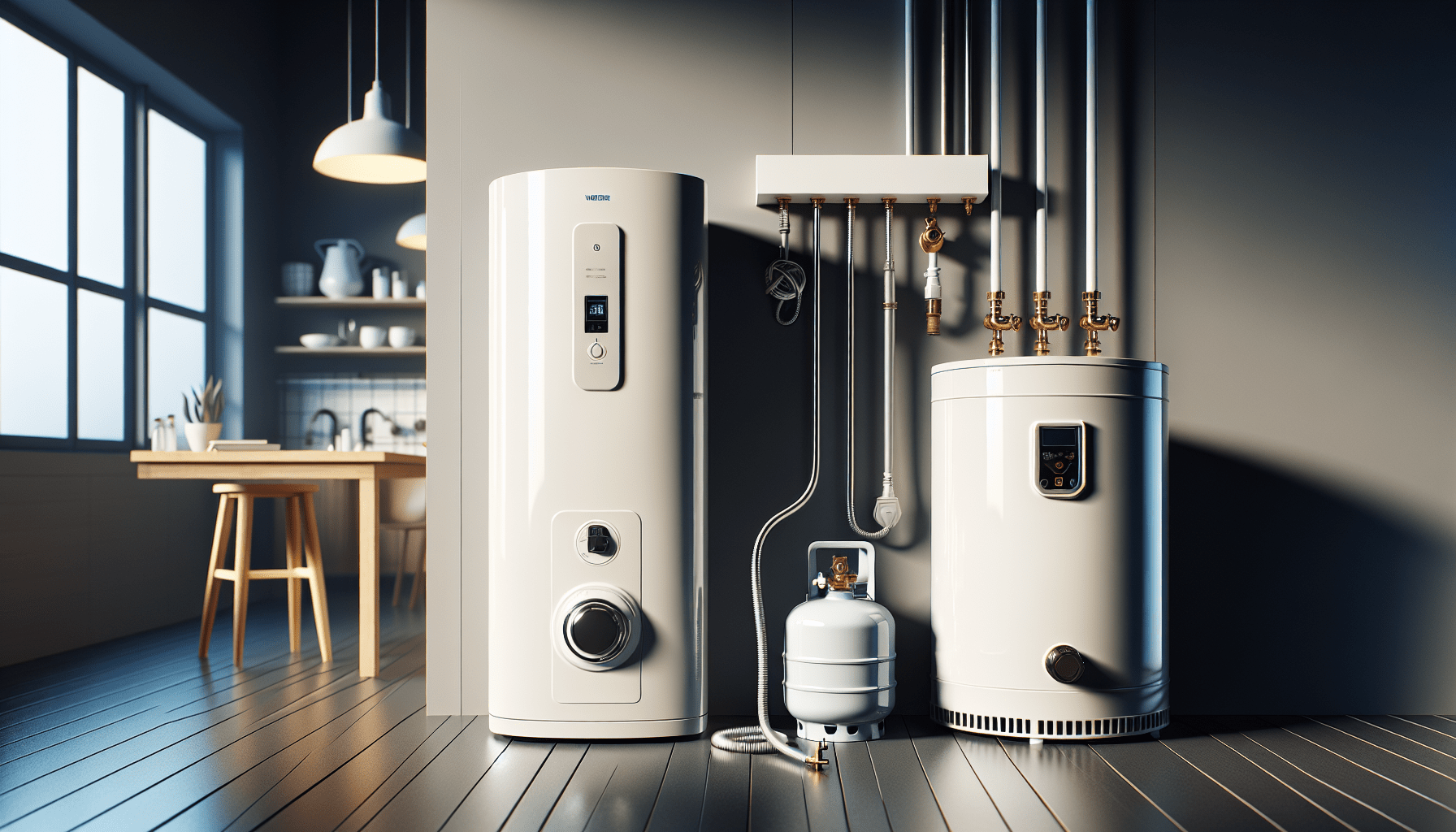Have you ever found yourself pondering the best way to heat your water? Maybe you’ve recently moved into a new place, or perhaps you’re simply weighing the options to upgrade your water heater. The debate between electric and gas water heaters is longstanding, and many factors come into play when considering which is more energy-efficient. Let’s unpack this topic together.

Understanding the Basics of Water Heaters
Before we jump into the big question of energy efficiency, it’s helpful to understand how these systems work in the first place.
How Electric Water Heaters Function
Electric water heaters utilize electric resistance heating elements to warm the water. These elements are submerged in the water tank and heat it’s water as electricity flows through them. The process is relatively straightforward; however, the temperature can take a while to rise if your tank is large.
The Mechanics of Gas Water Heaters
Gas water heaters, on the other hand, use either natural gas or propane to heat the water. A burner at the bottom of the tank ignites and heats the water directly. Gas heaters tend to heat water more quickly than their electric counterparts, thanks to the more intense heat produced by gas flames.
Energy Efficiency: What Does It Really Mean?
Energy efficiency essentially refers to how much of the energy you buy is converted into usable heat. The more efficient a system is, the less energy is wasted.
Measuring Energy Efficiency
Electric and gas water heaters employ different scales to measure efficiency. Electric models often use a measure known as Energy Factor (EF). In contrast, gas water heaters are typically rated using the Annual Operating Cost (AOC) model, which considers the energy consumed over a year versus the energy output.
Low EF numbers for electric models indicate lower efficiency, while higher AOC values for gas can show how much you might end up spending annually.

The Case for Electric Water Heaters
When comparing the two options, electric water heaters have some attractive features that might sway your decision.
Initial Costs and Installation
Electric water heaters tend to have lower upfront costs. You might be pleased to learn that purchasing an electric water heater often means you’re looking at less installation complexity as well, especially since many homes are already pre-wired for electric appliances.
Safety Features
Electric heaters can also boast safety in some respects. With no open flame, there’s less risk of gas leaks, which can be a concern for homeowners.
Environmentally Friendly Options
With the growing emphasis on sustainability, electric water heaters offer the possibility of using renewable energy sources. If your electric supply comes from solar, hydro, or wind energy, you can heat your water with much lower environmental impact.
The Case for Gas Water Heaters
Let’s not overlook the strong points of gas water heaters. While electric models are certainly appealing, gas units have their own set of advantages.
Faster Heating Times
As mentioned earlier, gas water heaters warm up water significantly faster due to their direct heating method. If you find yourself in need of hot water on a cold winter morning, this could be a crucial factor.
Lower Operating Costs
Typically, natural gas is cheaper than electricity in many regions, which can mean lower monthly utility bills. This cost-effectiveness is often a deciding factor for many households.
Longer Lifespan
Gas water heaters tend to last longer than electric ones, thanks to their simpler internal systems. This could ultimately save you money in the long run despite a higher initial cost.
Comparing Efficiency: Electric vs. Gas
When it comes to comparing the two options, it’s essential to understand how efficiency plays out in real numbers.
Energy Efficiency Ratings
Let’s look at some of the specifications and energy factors:
| Feature | Electric Water Heaters | Gas Water Heaters |
|---|---|---|
| Energy Factor (EF) | 0.90 to 0.98 | 0.55 to 0.70 |
| Annual Operating Cost | Generally higher | Generally lower |
| Heating Time | Slower | Faster |
| Emissions | Lower with renewables | Higher due to gasburning |
The nuances of numbers and cost may still leave you pondering which option is more energy-efficient overall.
Local Costs and Regulations
Your decision may also depend heavily on where you live. In some areas, electricity is more expensive than gas; in others, it can be the opposite. You may also want to check if there are any regulations regarding emissions that could influence your choice.
Innovation in Water Heating Technology
The world of water heaters doesn’t stand still. Both electric and gas technologies frequently see innovations that boost their efficiencies.
Tankless Electric Water Heaters
These compact wonders heat water on demand, preventing the need for a bulky tank. They can significantly reduce energy wastage, as they’re not constantly heating a large volume of water.
Advanced Gas Technologies
Modern gas water heaters are also becoming increasingly sophisticated, with technologies like condensing gas heaters that utilize the heat of the exhaust gases to preheat incoming cold water, resulting in greater efficiency.
Importance of Maintenance in Efficiency
Regardless of which choice you make, regular maintenance is essential for optimal performance and efficiency.
For Electric Water Heaters
You should consider:
- Checking heating elements for sediment buildup.
- Flushing the tank yearly to reduce sediment accumulation.
For Gas Water Heaters
You’re looking at:
- Inspecting the burner for soot and efficiency.
- Flushing the tank at least once a year.
The more attention you pay to your device, the longer it lasts and the more energy-efficient it remains.
Conclusion: Making Your Decision
Ultimately, choosing between electric and gas water heaters comes down to your specific needs and circumstances. The electric models present an attractive starting point with lower initial costs and potential environmental benefits. Meanwhile, gas heaters boast lower operating costs, faster heating, and longer lifespans.
As you ponder your options, consider your local energy costs, your household’s hot water usage patterns, and your environmental priorities. Each home’s needs are unique, making it wise to weigh all factors carefully.
Remember, whether you lean toward gas or electric, ongoing maintenance will play a crucial role in keeping your unit running efficiently. And who knows? Maybe in a few years, a new technology will tip the scales again, making your decision even more exciting!

